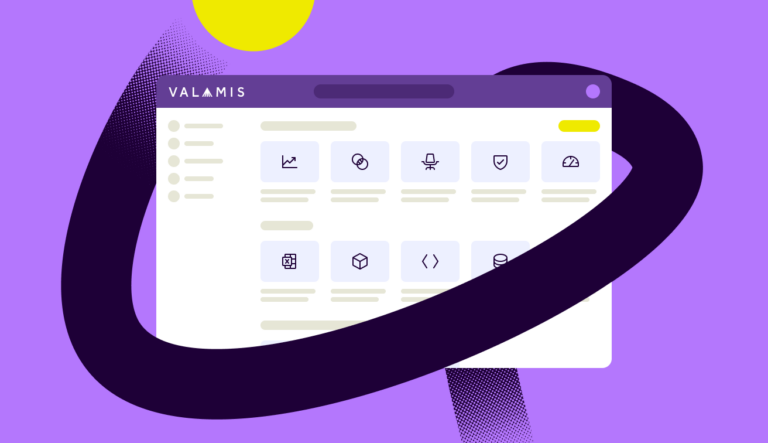Exit Interviews, Done Right: A Complete Guide
Learn how to conduct exit interviews, what questions to ask, and how to make the most of the information you gain from it. The question list and Microsoft form are included.

Exit interviews are more than just polite goodbyes.
Done right, they can become a goldmine of insights for HR and L&D teams.
In this blog, we’ll walk you through everything from what an exit interview is, to how to run one smoothly, what questions to ask, and how to actually use the feedback you collect.
Whether you’re a seasoned HR pro or just refining your employee experience strategy, this guide will help you make your exit interview process sharper, smarter, and more impactful.
Discover:
- What is an exit interview?
- What is the purpose of an exit interview?
- How to conduct an exit interview
- Exit interview tips and best practices
- Exit interview questions
- Downloadable exit interview form & template
What is an exit interview?
An exit interview is a structured conversation between an employee who’s leaving and someone from HR or management. It’s your chance to get honest feedback on everything from leadership and communication to company culture.
Done well, these interviews uncover what your employee experience looks like in practice – and what needs to change.
What is the purpose of an exit interview??
The purpose of an exit interview goes beyond checking off a procedural HR task.
It’s about:
- Understanding the reasons behind an employee’s departure
- Gaining unfiltered insights into your organization’s culture, policies, leadership, and team dynamics
- Spotting recurring issues before they escalate
- Improving your retention strategy based on real feedback
Think of it as a diagnostic tool.
You might not be able to retain the departing employee, but you can absolutely use their feedback to keep others from following the same path.
And here’s something many companies miss: exit interviews are also a branding opportunity.
The way you conduct these conversations leaves a lasting impression and can influence whether an ex-employee becomes a promoter or detractor.

Exit interview template
Conduct an exit interview and collect valuable information that can help improve the work culture in your organization.
Download TemplateHow to conduct an exit interview (without making it awkward)
If you’re not sure how to conduct your exit interviews, use this guide as a practical framework you can tailor to your organization.
1. Create your list of questions
While the best exit interviews feel conversational, they still need structure. Start with a prepared list of questions to guide the discussion and ensure no important topics are missed.
Include questions about the employee’s overall experience, their specific role, management, and why they’re leaving. This helps keep the conversation balanced and informative.
Note: Leave space for additional comments. Some of the best feedback comes from unexpected insights.
2. Include everyone
Every departing employee—regardless of seniority, department, or reason for leaving—should be offered an exit interview.
Even if someone is leaving under challenging circumstances, it’s worth making the effort. These interviews often reveal systemic issues that others haven’t voiced.
If you skip the interview, you miss a critical opportunity to understand and improve the employee experience.
3. Find a suitable time
Schedule the interview at a time that feels natural and respectful. Ideally, this should happen near the end of the employee’s final day—when they’re most likely to share honest feedback.
Too early, and the answers may be guarded. Too late, and the employee has moved on mentally (or logistically).
Keep a few time slots available each week to make scheduling smoother.
4. Choose the right interviewer
Avoid direct supervisors when possible. Employees may hesitate to share concerns if they’re speaking to someone they report to (or had issues with).
Instead, use a neutral party—typically someone from HR or a senior leader not directly involved in the employee’s day-to-day. This ensures a more honest, candid exchange.
You can also rotate interviewers or designate a trained HR rep for consistency and quality.
5. Conduct your interview
Start by setting a relaxed tone. Let the employee know the interview is confidential, and that their feedback will be used constructively.
Briefly outline what you’ll cover and allow room for open-ended conversation.
Ask questions in a logical order, but be flexible. Let the employee lead where it makes sense. Capture notes, especially any themes or unexpected insights.
Wrap up by thanking them for their time. Ask if it’s okay to follow up later for clarification. And double-check you have up-to-date contact info if needed.
The result? A smoother offboarding process and richer feedback you can actually use.

Exit interview template
Conduct an exit interview and collect valuable information that can help improve the work culture in your organization.
Download Template6. Use and spread your knowledge
The exit interview is only half the equation. What you do with the information afterward is where the real value lies.
Exit interviews provide insights you might never get during regular 1:1s. But collecting feedback isn’t enough—you need to analyze it, act on it, and communicate learnings internally.
- Are there issues consistently brought up in exit interviews?
- Do employees often have the same reason for leaving the organization?
Use recurring themes to identify problem areas, and collaborate with leadership to develop concrete action plans. Whether it’s a lack of growth opportunities or unclear communication from management, feedback from exit interviews helps you target real areas for improvement.
Don’t silo feedback by department. Sometimes an insight from one area applies across the business. A comment about management in finance might be a red flag for leadership in other teams, too.
Exit interview tips and best practices from HR pros
This list of tips and best practices will help you streamline a successful exit interview process.
1. What to say in an exit interview
It’s important to phrase questions and responses correctly to achieve the results you want in an exit interview.
Open-ended questions are incredibly important since it allows people to give a more personal response that you can’t get from “yes or no” types of questions.
Make sure your interviewee knows that you’re looking for honest feedback and that their answers won’t reflect on future references from the company.
Ask targeted questions, but also allow the interviewee to lead as much of the conversation as they feel comfortable with.
Try this:
- “We appreciate your honesty today. Everything you say stays private.”
- “Your feedback helps us improve the experience for others.”
- “Would you be open to a follow-up chat if we need clarification?”
Avoid:
- “That’s not true.”
- “That’s not how we do things here.”
- Anything that sounds defensive
2. Don’t let the questionnaire take over
Yes, you do need to keep a list of questions to cover during an exit interview. However, there are plenty of valuable insights you can gain that might not be specifically covered in your questionnaire.
Let the questions lead the conversation, but don’t cut off your interviewee when responses lead to other relevant topics being brought up. You may find that some of your most unexpected (and helpful) information comes from organic conversation.
3. Follow up after the interview
The initial exit interview doesn’t have to be the end of the conversation. You should conduct interviews near the employee’s last day, although you can still follow up afterwards. Some people may not feel comfortable giving specific answers so close to their last day or may change answers after moving to another company and having time to reflect.
Likewise, if there are answers that management feels are especially helpful, you can follow up with a call or email to get expanded feedback.
4. Keep the pressure off
Let employees know that this interview is to help the company get honest feedback and valuable insights from an employee perspective. Make it very clear that there won’t be any repercussions for their feedback.
Keep the atmosphere relaxed, casual, and open so that your soon-to-be former employee can answer all questions fully and truthfully.
Another part of keeping a relaxed environment is making sure the employee doesn’t feel outnumbered.
Tip: You don’t need a group to conduct the interview.
Exit interview questions
These questions aren’t just HR fluff. They’re crafted to get meaningful insights. Here’s what each one tells you — and why it matters.
1. What made you start looking for a new job?
This uncovers the trigger point. Was it a bad meeting? A missed promotion? Spotting patterns here helps prevent future resignations.
2. What did you enjoy most about your role?
This highlights what’s working. Knowing what employees value helps you double down on your strengths.
3. Did you get the support and training you needed?
You’ll find out if your L&D efforts actually delivered. This question reveals gaps in onboarding and ongoing professional development.
4. How would you describe the work environment here?
This gets to the heart of your company culture. Are people collaborative or competitive? Inclusive or cliquish?
5. How do you feel about your manager and team?
Managerial relationships can make or break employee satisfaction. This helps diagnose leadership effectiveness without putting people on blast.
6. What could we have done differently to retain you?
This is your second chance — not for this employee, but for others. It gives you a to-do list to improve retention.
7. Did you feel heard during your time here?
This question measures psychological safety. If people don’t feel comfortable speaking up, issues fester and morale drops.
8. What benefits or perks did you value the most?
Learn what matters most to your team so you can design smarter benefits packages that retain top talent.
9. Would you recommend us to a friend?
This is your informal eNPS score. It shows whether the employee leaves as a brand advocate or a brand risk.
10. Anything else we should know?
This open-ended question is where gold often lives. Employees frequently share the most valuable, unfiltered feedback here.
Want it all in a ready-to-use format? We’ve got you. Download our exit interview questions template.

Exit interview template
Conduct an exit interview and collect valuable information that can help improve the work culture in your organization.
Download TemplateTurning feedback into action (the real win)
Here’s the truth: Exit interviews don’t mean much if you don’t do something with the info.
Ask yourself:
- Are people leaving for the same reasons?
- Are managers receiving feedback they never act on?
- Are issues consistent in one department?
Use your findings to:
- Update your L&D programs
- Train better managers
- Rethink policies that don’t serve employees
Final thoughts
An exit interview isn’t a box to tick. It’s a powerful tool for creating a better workplace.
With the right exit interview template, smart questions, and the courage to act on feedback, you can turn goodbyes into real growth.
Ready to make your interviews better?
Download our exit interview template and start collecting feedback that drives real change.




